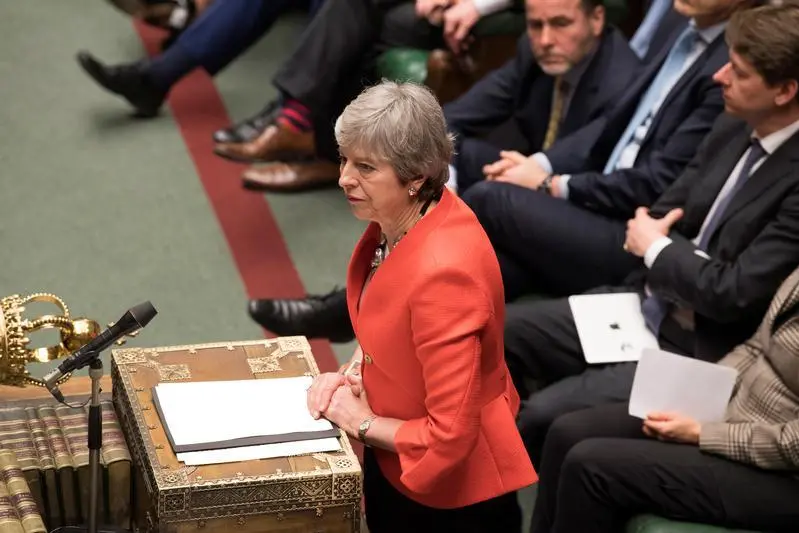PHOTO
LONDON (Reuters Breakingviews) - The lady is for turning after all. After failing for a third time to ram her Brexit deal through parliament last week, British Prime Minister Theresa May on Tuesday offered to compromise. Her belated approach to the opposition Labour party, following an all-day cabinet meeting, is a welcome sign that she wants to avoid crashing out of the European Union without a deal. But her pivot still faces at least three obstacles.
It’s long been obvious that May’s minority government was going to need outside help to deliver a deal. But the prime minister had until now rejected any formal collaboration with opposition lawmakers. Labour leader Jeremy Corbyn, meanwhile, focused on straddling the wide range of Brexit opinion in his own party, while attempting to duck any blame for the mess.
The offer of talks allows Labour to push its own Brexit preferences, which include a permanent customs union with the EU, and possibly a referendum on a deal. However, Corbyn is bound to be wary. May has promised her party that she will step down if the withdrawal agreement is approved. Her successor could renege on any promises she makes.
The Conservative party is another big obstacle. The prime minister has promised that her government would support a compromise which gains a parliamentary majority. That could destroy her party. In a series of votes on Monday, more than 200 Conservative lawmakers, over two-thirds of the total, rejected all of the softer Brexit options on offer, including a customs union. Some rebels might even support a no-confidence motion to bring down the government.
Then there’s the European Union. Though the bloc’s 27 other members have signalled they could extend Britain’s membership beyond April 12, this depends on the country coming up with a credible plan to resolve the mess. May suggested on Tuesday that Britain could still leave before European Parliament elections at the end of May. The EU will probably conclude that’s unrealistic.
May’s belated decision to pivot away from a damaging “no deal” Brexit reduces the risk of that outcome. Yet a chaotic departure could still happen if talks with Corbyn go nowhere, and parliament is unable to agree on an alternative plan. The outcome remains just as uncertain as before.
CONTEXT NEWS
- British Prime Minister Theresa May said on April 2 that she would seek a further delay to strike an agreement with opposition leader Jeremy Corbyn on how to leave the European Union.
- May said she wanted a withdrawal bill to be passed before May 22 so that the United Kingdom does not have to take part in European Parliament elections that month.
- The impasse has already delayed the country’s departure for at least two weeks beyond the planned exit date of March 29 to April 12.
- The pound gained 0.3 percent in early London trading to $1.3187, its highest since March 28.
(The author is a Reuters Breakingviews columnist. The opinions expressed are his own.)
(Editing by Neil Unmack and Bob Cervi) ((peter.thal.larsen@thomsonreuters.com; Reuters Messaging: peter.thal.larsen.thomsonreuters.com@reuters.net))





















